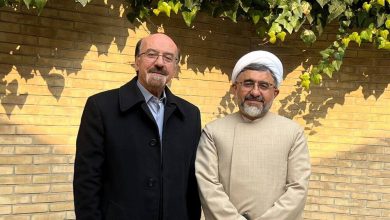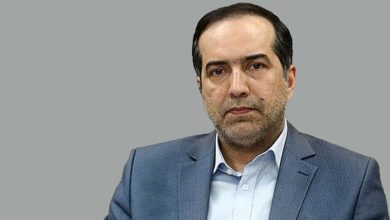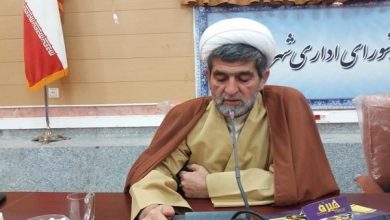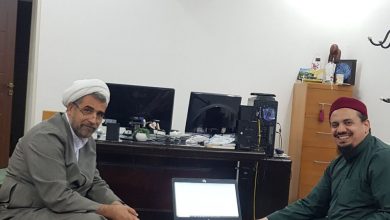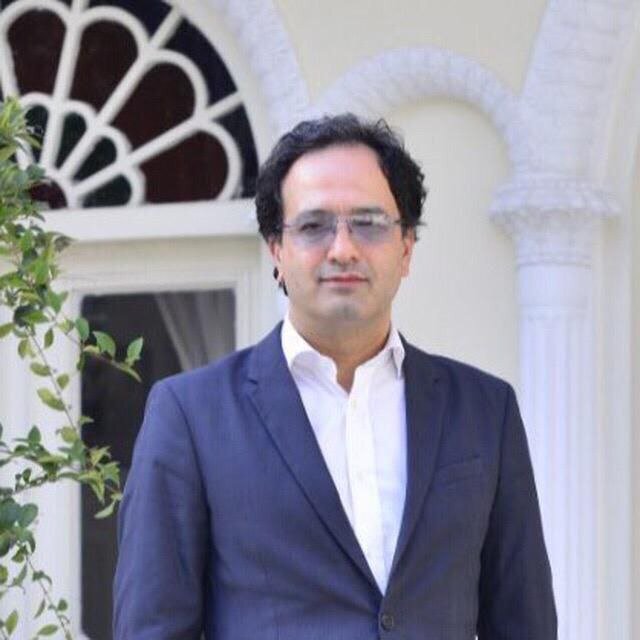

Perhaps it is useful to look at the issue from another angle for Iranian researchers and policy makers, and it is related to the importance of this agreement in weakening two Western mental structures, that is, the permanent existence of a “win-lose game” between Iran. And the Arabs by justifying the existence of permanent conflicts, geopolitics and “the need to form a collective security system in the Persian Gulf region” with the presence of foreign powers, which this author considers the beginning of the era of “regional pluralism” in West Asia, relying on the development approach to transfer technology, energy and chain Transport. The area is called a commodity.
First, for decades, the promotion of the mental and historical structure of the “win-lose” equation and the existence of a permanent conflict in relations between Iran and the Arab Gulf states has been the main focus of Western and some Arab analysts. . In this thought structure, an increase in the power of one side was defined as a decrease in the power of the other side, and as a result, it was conceived that the two sides were in constant competition to increase their relative strength and security. The unnecessary war waged by the Iraqi Baathist regime against our country is a model endorsed by the Arab states of the Persian Gulf and the West and even the East. This war was formed by justifying the mental structure of the need to prevent an increase in the ideological and geopolitical power of Iran, and based on Saddam Hussein’s ambitions to get out of the Iraqi geopolitical bottleneck in the region. But now, Iran and Iraq have emerged from this intellectual structure and are living even their best political, cultural and economic relations, of course beyond the usual political differences. Iran’s relations with conservative countries in the Persian Gulf, especially Saudi Arabia, are based on the mental and Western structure of the existence of a permanent and strategic threat from Iran (read Iran’s threat to the West) and the need for their comprehensive policy – security and economic linkage to the Western equation in order to obtain military and energy security guarantees .
The second mental structure relates to the need to form a collective security system in the Persian Gulf region with the presence of foreign forces (either from the West or from the East). The logic of this intellectual structure is based on the necessity of a political-security system for a “balance of power” between the main actors in the region, through which the interests of the Arab countries and mainly the Western equation are achieved in areas such as selling. Preservation of weapons and exchange of goods and services. However, experience shows that emphasizing the need to maintain a balance of power becomes the basis for the formation of strategic conflicts, rivalries, accumulation of weapons, and a constant sense of insecurity among the countries of the region (an example of this is the Iran-Iraq war). The truth is that regional security is entirely local and should be provided by the countries of the region without the presence of foreign actors (whether from the West or the East) and on the basis of existing regional political and security realities. The way to achieve this type of collective security also passes through the individual security of states and the strengthening of their independent political and security approaches. In this form, each country plays its share of local security, and as a result of the accumulation of individual security of countries, regional collective security is naturally formed. It is clear that foreign actors have interests in the region in terms of energy security and commodity exchange, but it is necessary to follow up and adapt their interests through the interests of regional actors. Will the Europeans allow Iran and the Arabs of the Persian Gulf to participate in the security of the Mediterranean?
In my opinion, China, as a global player strongly inclined to strengthen relations in the “bilateral” format, understood the above issues well and took a step against the intellectual and guiding structures of Western interests, thus losing the confidence of Iran and Saudi Arabia. First, China has shown that a win-win regional game and in fact the simultaneous strengthening of Iran and Saudi Arabia is in the interest of regional security and therefore China’s interests. Secondly, China does not want a share for itself (unlike the West and Russia) in the collective security system of the Persian Gulf region and pursues most of its interests by promoting separate and independent relations with Iran and Saudi Arabia. Experience shows that China enters into bilateral relations only with economically and politically strong countries. Iran has a strong national, historical, and political government with a superior geopolitical position at the important geographic junction between West and South Asia and the landlocked Eurasian region, and has therefore always been of interest to China. But the interesting thing is that over the past decade, the Saudis have turned the minds of the Chinese towards themselves as an economic and political power, and at the same time changed their understanding of China’s worldview, which led to the further expansion of bilateral relations between the two countries. Rather, China’s policy in the reconciliation between Iran and Saudi Arabia is to maintain regional stability and security within the framework of preserving energy security and the regional cargo transport chain through these two regional powers. The “Global Security Initiative”* is the new Chinese model in global politics, which along with the “Global Development Initiative”** and the “Belt and Road Initiative”*** charts the Chinese policy model in the global political scene.
But in the aggregate, two important geopolitical developments provided the necessary political conditions for all three parties to this important diplomatic act. First, the withdrawal of US military forces from the eastern Mediterranean, Iraq, and especially Afghanistan, which means the failure of its dominant traditional role in managing political and security trends in the region. The absence of a great power on the battlefield gradually weakens its political role. This development had an important geopolitical message for the conservative Arabs in the region, which is that the role of the American security guarantor can no longer be trusted and that their strategic interests require relying on the independent levers of their national power and strengthening regional cooperation. To solve their strategic problems, especially with Iran. This should not necessarily translate into a weakening of the strategic relations of the Arab countries in the Persian Gulf region with the Western equation, but the inevitable reality has become clear to them that the United States does not participate in adventurous military operations with Iran solely for the sake of the interests of these countries. An advanced American drone over the Arabian Gulf were two practical and clear experiences for these countries.
The second geopolitical shift is associated with the war in Ukraine and the foundations for the formation of a new order in world politics. For the first time in modern history, the conflict is taking place outside the region and between the northern countries, namely Russia and Ukraine (read Europe and NATO). In addition to all the ugliness of this war, the conflict between Russia and the West presented for the first time a geopolitical opportunity for regional actors to play an independent role and even manage the conflict within the framework of securing their interests by diversifying their international relations beyond the Western equation. By creating a wall of sanctions on the Western Front, Russia has directed its geopolitical and economic orientation towards the south and east. This is a unique opportunity to change the direction of the technology, energy and commodity transfer chain at the regional level. And in the Global South, especially China, it was introduced to speed up the transfer of money to Asia and the East. Now, China, India, Iran, Saudi Arabia and Turkey have found a new space to adapt their geopolitical interests to the regional realities and advantages of their geographical environment. Activation of the north-south corridor linking Saint Petersburg in Russia to Mumbai in India via Iran, and the east-west corridor of the One Belt One Road initiative linking China with Western Asia, Eastern Europe and Africa. Focusing on the development of regional and regional cargo transport chain, and provided a unique opportunity for economic exchange for the countries of the West Asian region, especially Iran, which is located in the heart of linking these two important corridors.
Therefore, the most important effect of China’s diplomatic action in the reconciliation between Iran and Saudi Arabia is the beginning of a new era in promoting regionalism and accelerating the de-Westernization of world politics. This new geopolitical trend in world politics is not necessarily anti-Western in nature, but rather uses the created space, which itself is the result of geographical and historical determinism, to express its geopolitical advantages. There is no doubt that the equation of the West goes beyond thinking about the need to strengthen and unify transatlantic relations (the union of Europe and the United States in order to maintain hegemony in world politics) in order to face the new geopolitical development, it is better to accept the correct way of reconciliation and accept the political and economic role of the non-Western world in World politics Finally, with regard to the lessons of our country’s foreign policy, it must be understood that the Chinese (as they now portray Saudi Arabia as an important economic power) give more strategic importance to an economically strong Iran than geopolitical superiority and a constructive role. To create regional stability and security. Now, the economic weakness of our country has been compensated in some way by the superior role of geopolitics and its increasing deterrent power. But the sustainable solution is to strengthen the national economic power to support this geopolitical role. Iran’s reasonable and timely move to open relations with Saudi Arabia increases Iran’s strength in the eyes of China, the region and the West.
Global Security Initiative (GSI)
Global Development Initiative (GDI)
Building and Road Initiative (BRI)
* Professor of International Relations
